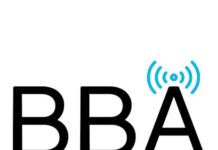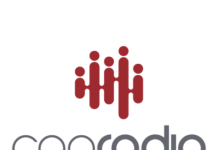
(By Mike McVay) The reason to talk to a listener on the air is for the listener. It’s not for that specific caller. It’s to present an opinion that is contrary to yours or that of another guest, or it is to air a call that supports your opinion, while providing an additional or different perspective. Including calls on a show enables you to hit many opinions quickly, adds additional personality to your program, and it makes the host (and the station) feel approachable.
Many stations today prefer to read a message that they received on social media, and that has real value, because it creates a connection with an audience. What it doesn’t do is give you credibility. There’s always a question of credibility with airing a caller, however it isn’t always possible. For those times, social media has to do the trick. Be sure the audience will find the message on your social media feed, if you’re reading it on the air. Be credible.
Caller’s on-air gives most shows more energy and more depth. It makes a show feel lively and dynamic. It can make you sound more local and definitely makes your show sound more connected to the community. People enjoy eavesdropping on conversations, which is especially true, when the conversation allows us, the audience, to be voyeurs.
While the host may want to create a welcoming feeling to a caller, no one needs to hear the normal chit-chat that happens when you’re talking to a friend, as it elongates the call and distracts the listener. We also don’t need to hear the words “Goodbye” or “Thanks for calling.” Some will disagree and believe it makes the host sound cold. It doesn’t have to sound that way. If the host is consistent, the listeners “get it” and understand the process.
If the call screener prepared the individual calling-in they will know that they need to get to the point, and the host may not say goodbye to them as they’re trying to move through calls quickly. The person calling into the show will understand. They know that they’re a part of the program. It’s an honor to make it onto the air. The majority of your audience will never call into a show. Those that do should be treated courteously … before they speak to the host.
If you’re a host who takes calls, be it that you are on a music show or a spoken word show, you have to establish that callers are treated with respect. You want the audience to feel that it’s safe for them to participate. They need to feel that they’ll be treated respectfully without fear of humiliation. That doesn’t mean that you will never disagree or argue with a caller. It means that you won’t attack them in a mean or hurtful fashion.
When you have a caller that sounds engaging, then engage them, and ask them questions. Pay attention to what’s being said so you never miss a great comment that you can playoff of, and never sound as if you’re waiting for them to pause for you to speak, unless what they’re saying is uninteresting, wrong or argumentative. Then, that breath is your moment to spring in with your views, and it serves as a “Set-up” for your reaction.
Never be dismissive when it is unwarranted. Always remember that the question you’re asking them is for the audience that will never call a radio station. Object strongly when the caller’s opinion is immoral, uneducated, clearly wrong or socially repulsive. The objection in those cases prevents your station or your character from being tainted. Silence is an endorsement of what’s been said.
Listen for that “something” you hear in a caller’s voice that lets you know they are entertaining or interesting. Be fast in knowing when to end a call and move on. If you’re recording your calls in advance, you can edit out the pleasantries and produce the call to get to the point quickly. If you’re calls are preproduced, then the audience should never hear a boring or pointless call.
When you’re soliciting for calls, if it’s a poll question, personalize it for yourself or for your listeners. You do that by using the word “You” or you give an example that places you or a friend, maybe a family member, in the situation that prompted the poll. Polls that are the most successful are either fun, relatable or they’re about a lightening bolt topic that is trending.
Generating calls comes not only from airing a lot of calls, which is like chum to sharks, but by saying the phone number repeatedly. I know … it’s obvious. Unfortunately, it happens infrequently on most shows and stations. Produce the number and air that if the host feels uncomfortable saying the number frequently.
Most importantly … listen to the caller. There’s no reason to engage a caller on-the-air if you’re not going to be engaged yourself.
Mike McVay is President of McVay Media and can be reached at [email protected]





